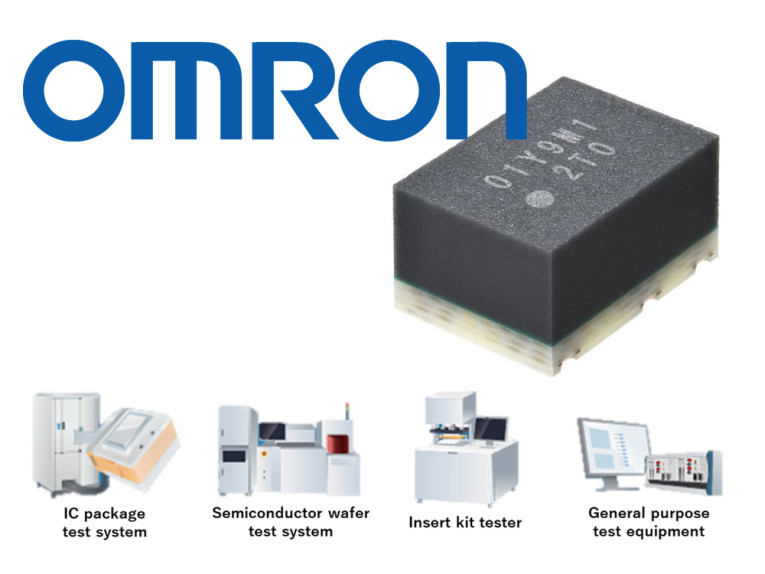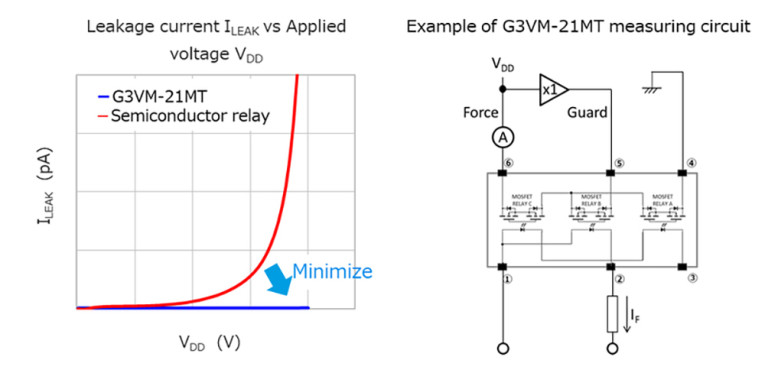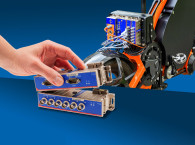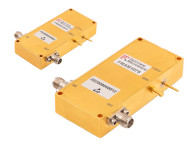
Amid the digital age where functions of electronic components are getting diversified and production volume is increasing, there is a growing need for higher performance of semiconductor test equipment. Mechanical reed relays, which have been used for a part that performs high-precision measurement in semiconductor test equipment, have extremely low leakage current but they require replacement on a regular basis, maybe several times for every single month due to wear and abrasion of the contacts that lead to affecting measurement accuracy. Such maintenance work may substantially affect production efficiency and so adoption of solid state relays has been long desired for their longer lifecycle. Until now, MOS FET (Metal-Oxide-Semiconductor Field-Effect Transistor - a type of field-effect transistor) relays weren't considered suitable for precise electrical tests and weren't used in test equipment systems that require high reliability, mainly due to technological difficulties in reducing leakage current.


To meet these needs, by utilizing OMRON's technologies of electronic components cultivated over many years, the company has succeeded in creating the new relay module G3VM-21MT by adopting the "T-type circuit structure" and significantly reducing leakage current to a level lower than or equal to 1pA (one-trillionth part of the ampere). The challenge in reducing leakage current in a solid state relay as close to zero as possible eliminates leakage current problem and improves test equipment reliability. Moreover, by integrating long-life MOS FET relays into the relay module, it allows for shorter downtime for maintenance which has been a long-standing challenge for mechanical relays. "With the launch of the G3VM-21MT, OMRON will strive to contribute to improving the productivity of electronic components and support the evolution of digital transformation in society," the company states.
www.omron.com






